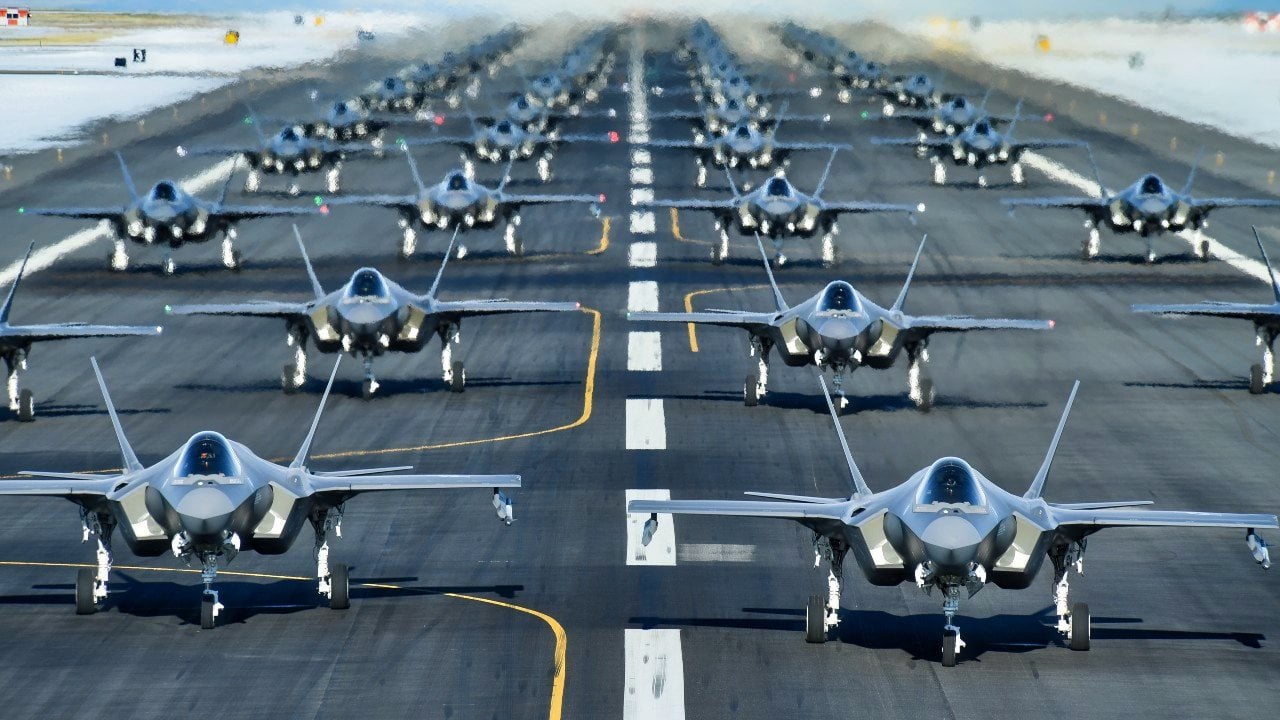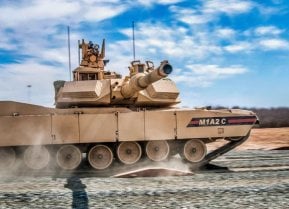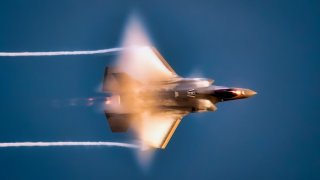Turkey Likely Has No Chance of Getting the F-35 Fighter Now
Turkey's expulsion from the F-35 program meant more than it not just being denied the chance to purchase any of the fighters. Its aerospace industry was also to produce some 900 parts for the advanced stealth fighter, including components for the center fuselage and cockpit display. Ankara has continued to seek compensation for its financial loss, Fidan added.
Turkey Looks Likely to Choose the S-400 Over the F-35: NATO member Turkey was infamously expelled from the Lockheed Martin F-35 Joint Strike Fighter program for its decision to move forward with the acquisition of the Russian-made S-400 "Triumf" air defense system.
Washington and NATO leadership argued that the systems were not compatible and that Turkey's operation of both systems would jeopardize the safety of the fifth-generation aircraft.
In recent months, it had looked as if Ankara was showing "buyer's remorse" for its acquisition of the Russian anti-aircraft launching system, but according to a report from Bloomberg on Monday, it now appears that Turkey will retain the S-400. That might mean any F-35 reboot for Turkey could be dead and buried.
In remarks to AHaber TV, Turkey's Foreign Minister Hakan Fidan on Sunday signaled that Ankara may continue to operate the Triumf, even if that closes the door on any chance of rejoining the Joint Strike Fighter program.
This was an unexpected turn, given that the White House only recently notified Congress that it would approve the sale of forty of the latest block of F-16 Fighting Falcon combat aircraft, along with modernization kits for its fleet of seventy-nine older fighters.
The sale of the aircraft and kits came after Ankara had ratified Sweden's membership to NATO.
Turkey Was a Major F-35 Partner
Turkey's expulsion from the F-35 program meant more than it not just being denied the chance to purchase any of the fighters. Its aerospace industry was also to produce some 900 parts for the advanced stealth fighter, including components for the center fuselage and cockpit display. Ankara has continued to seek compensation for its financial loss, Fidan added.
Producing parts for the F-35 Lightning II was also expected to have generated $9 billion in revenue for Ankara, while six F-35 aircraft produced for Turkey were not delivered.
It was just last week, during a visit to Turkey that U.S. Acting Deputy Secretary of State Victoria Nuland said that discussions could be made to return Ankara to the F-35 fighter jet "family" if the issue of the S-400 were resolved. In addition, Washington had sanctioned Turkey's defense industry as a result of the acquisition of the S-400.
"If we could get through this S-400 issue, which we would like to do, the US would be delighted to welcome Turkey back into the F-35 family. But we must solve this other issue first, and while we solve it, we must also ensure that Turkey has a strong air defense, Nuland told CNNTurk television.
It was also last week that the U.S. State Department approved the sale of F-35 Lightning IIs to Greece – a NATO member but also historic rival to Turkey. Even as Greece and Turkey had strived to repair relations and build friendly ties, they will likely closely monitor each other's military capabilities.
Ankara has suggested its desire to obtain the F-35 isn't conditional.
Did Turkey Make a Mistake?
Ankara claimed it was forced to purchase the S-400 Triumf as Washington refused to sell Turkey the U.S. Patriot missile system. However, despite Turkey's determination to move forward to adopt the Triumf, the system hasn't been made operational.
As previously reported, Turkish Defense Minister Ya ar Güler told reporters in December that the S-400 system would only be utilized when needed.
"This is a defense system. Don't we use a defensive weapon when someone attacks us? No country launches an attack on another by declaring, 'I will attack you in two hours.' In a wartime scenario, you need to move your aircraft, operate hundreds of trains and declare mobilization, and so on. In other words, for a country to launch an airstrike on another without anyone noticing is very difficult," Güler told journalists, per NordicMonitor.com.

Moscow had sent two S-400 batteries as well as more than 120 long-range missiles as part of the agreement along with experts to train Turkish soldiers on how to operate the Triumf. A second batch has yet to be delivered.
The S-400 Triumf system (NATO reporting name: SA-21 Growler), which was developed and produced by Almaz-Antey, was designed to provide protection from airstrikes including cruise, tactical and operational ballistic missiles as well as intermediate-range missiles in a radio-jamming environment.

It can also be used against ground installations. The S-400, which can also launch 40N6 missiles, is designed to engage targets at a distance of up to four hundred kilometers at up to six times the speed of sound, and at an altitude of up to thirty kilometers under intensive enemy fire and jamming. It first entered service in 2007.
Author Experience and Expertise: Peter Suciu
Peter Suciu is a Michigan-based writer. He has contributed to more than four dozen magazines, newspapers, and websites with over 3,200 published pieces over a twenty-year career in journalism. He regularly writes about military hardware, firearms history, cybersecurity, politics, and international affairs. Peter is also a Contributing Writer for Forbes and Clearance Jobs. You can follow him on Twitter: @PeterSuciu. You can email the author: [email protected].


